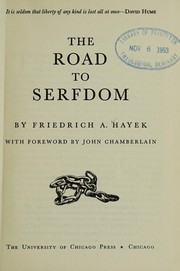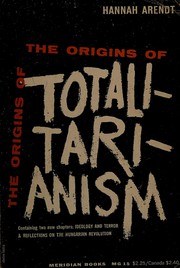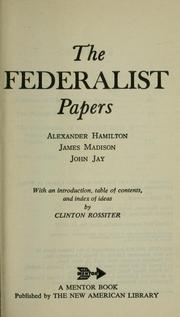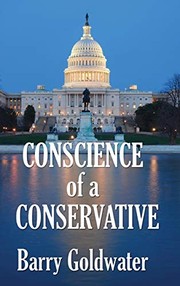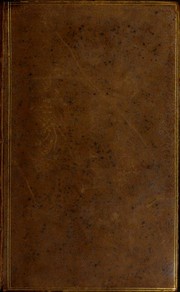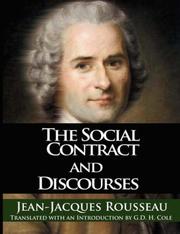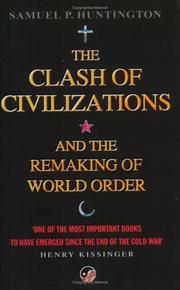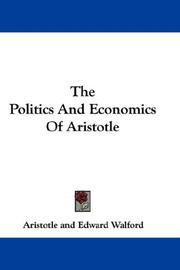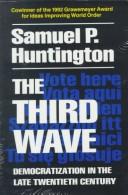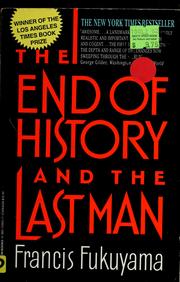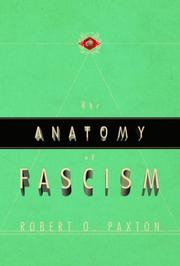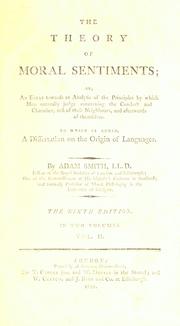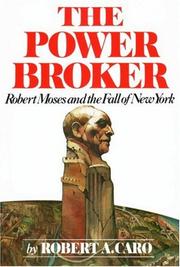Are you fascinated by the complexities of political ideologies and the impact they have on society? Look no further! We’ve curated a list of the 20 best books on political ideologies that will broaden your understanding of the subject. From classic works to modern analyses, these books will challenge your perspectives and stimulate your intellect. Whether you’re a student of political science or simply a curious reader, these political ideologies books are essential additions to your reading list.
Contents
- 1 20 Best Books About Political Ideologies
- 2 The Righteous Mind: Why Good People Are Divided by Politics and Religion
- 3 The Road to Serfdom
- 4 The Communist Manifesto
- 5 The Origins of Totalitarianism
- 6 The Federalist Papers
- 7 The Conscience of a Conservative
- 8 The Prince
- 9 The Social Contract
- 10 The Clash of Civilizations and the Remaking of World Order
- 11 The Open Society and Its Enemies
- 12 The Politics
- 13 The Third Wave
- 14 The End of History and the Last Man
- 15 The Communist Hypothesis
- 16 The Anatomy of Fascism
- 17 The Theory of Moral Sentiments
- 18 The Wealth of Nations
- 19 The Power Broker: Robert Moses and the Fall of New York
- 20 The New Jim Crow: Mass Incarceration in the Age of Colorblindness
- 21 The Shock Doctrine: The Rise of Disaster Capitalism
- 22 Conclusion
- 23
- 24 Not Hurting Others Books: A Curated 2024 Updated List
- 25 Books on Videography: 2024 Update of the Best Titles
- 26 Books on Manners For Kids: 2024 Update of the Best Titles
20 Best Books About Political Ideologies
The Righteous Mind: Why Good People Are Divided by Politics and Religion
by Jonathan Haidt
The Righteous Mind by Jonathan Haidt is a thought-provoking book on political ideologies and the psychology behind them. Haidt delves into the moral foundations that shape our political and religious beliefs, arguing that our moral intuitions drive our political divisions. Through engaging anecdotes and research, he explores why good people are so deeply divided by politics and religion. Haidt presents a compelling argument that understanding the moral psychology of different ideologies is crucial for bridging the gap between opposing viewpoints. Whether you’re interested in psychology, sociology, or simply want to gain insight into the divisive nature of politics and religion, this book offers a fascinating exploration of the factors that shape our moral beliefs and influence our social and political interactions.
The Road to Serfdom
by Friedrich Hayek
The Road to Serfdom, written by Friedrich Hayek, is a groundbreaking book on political ideologies that warns against the dangers of centralized planning and government control. Hayek argues that the path to serfdom, or oppressive government control, begins with the expansion of state power and the erosion of individual freedoms. He asserts that the socialist and collectivist ideologies prevalent in his time could lead to totalitarianism and the loss of personal liberty. Through a compelling and thought-provoking analysis, Hayek presents a powerful case for the importance of individualism and free-market principles in preserving a free society. This influential book about political ideologies continues to be relevant today, sparking important discussions about the role of government and the preservation of individual liberty.
The Communist Manifesto
by Karl Marx and Friedrich Engels
The Communist Manifesto, written by Karl Marx and Friedrich Engels, is a groundbreaking book on political ideologies that lays out the principles of communism. Published in 1848, it critiques the capitalist system and advocates for the overthrow of the bourgeoisie by the proletariat. The authors argue that the constant struggle between these two classes will ultimately lead to a classless society. They also discuss the flaws of capitalism, such as exploitation and inequality, and propose a revolutionary approach to create a society based on common ownership and equal distribution of resources. The Communist Manifesto has had a profound impact on global history and remains a pivotal book about political ideologies, sparking revolutions and shaping political movements around the world.
The Origins of Totalitarianism
by Hannah Arendt
The Origins of Totalitarianism, written by Hannah Arendt, is a seminal book on political ideologies that delves into the rise of totalitarianism in the 20th century. Arendt meticulously traces the historical, social, and political factors that led to the emergence of totalitarian regimes, examining the impact of imperialism, anti-Semitism, and the breakdown of traditional institutions on the development of totalitarian ideologies. Through a rigorous analysis of the totalitarian movements in Nazi Germany and the Soviet Union, Arendt provides a comprehensive understanding of the mechanics and consequences of totalitarianism. This book about political ideologies offers valuable insights into the nature of power, authority, and oppression, making it an essential read for anyone interested in understanding the complexities of modern political systems and their implications on society.
The Federalist Papers
by Alexander Hamilton, James Madison, and John Jay
The Federalist Papers, authored by Alexander Hamilton, James Madison, and John Jay, is a renowned book on political ideologies that played a pivotal role in shaping the United States Constitution. Written under the pseudonym “Publius,” these 85 essays were originally published in newspapers to advocate for the ratification of the Constitution. The Federalist Papers delve into the principles of federalism, separation of powers, and the importance of a strong central government. The authors passionately argue for a balanced and effective government structure, addressing the concerns of tyranny and the necessity of a system that protects individual liberties. This influential book about political ideologies continues to be studied and revered for its profound insights into the foundation of American governance and remains an essential read for anyone interested in political theory and governance.
The Conscience of a Conservative
by Barry Goldwater
The Conscience of a Conservative is a seminal book on political ideologies written by Barry Goldwater, a prominent figure in American politics. In this influential work, Goldwater presents his conservative beliefs and principles, advocating for limited government, individual freedom, and free market capitalism. He delves into the importance of preserving traditional values and the dangers of government overreach, making a compelling case for his political ideology. The book sparked significant debate and shaped the conservative movement in the United States, influencing generations of politicians and thinkers. Goldwater’s passionate and articulate defense of his political ideologies resonates with readers, making The Conscience of a Conservative a must-read for anyone interested in understanding conservative thought and its impact on American politics.
The Prince
by Niccolò Machiavelli
The Prince by Niccolò Machiavelli is a timeless classic that delves into the intricacies of governance and leadership. This book on political ideologies offers a provocative insight into the nature of power and the methods used to maintain it. Machiavelli’s astute observations and pragmatic approach to politics have made this book a cornerstone in political theory, and it continues to be a source of debate and analysis in modern times. The Prince is a book about political ideologies that challenges conventional notions of morality and ethics in the pursuit of political success. It is a must-read for anyone interested in understanding the complexities of leadership and the strategies employed to attain and retain power.
The Social Contract
by Jean-Jacques Rousseau
The Social Contract by Jean-Jacques Rousseau is a classic book on political ideologies that has shaped the way we think about government and society. In this thought-provoking work, Rousseau explores the concept of the social contract, arguing that individuals agree to live together in a society and surrender some of their freedom in exchange for protection and order. He questions the legitimacy of authority and discusses the ideal form of government, advocating for a system that reflects the general will of the people. Rousseau’s ideas have had a profound impact on political thought and continue to be influential today. This book about political ideologies is a must-read for anyone interested in understanding the foundations of modern political theory and the role of government in society.
The Clash of Civilizations and the Remaking of World Order
by Samuel P. Huntington
The Clash of Civilizations and the Remaking of World Order by Samuel P. Huntington is a thought-provoking book on political ideologies that challenges the traditional understanding of global politics. Huntington argues that in the post-Cold War era, the primary source of conflict will not be ideological or economic, but cultural and religious. He introduces the concept of civilization-based world order, where conflicts arise from the clash of different cultural and religious identities. This book about political ideologies suggests that the West’s dominance is waning, and the future will be shaped by the interactions and conflicts between different civilizations. Huntington’s ideas have sparked intense debate and continue to influence discussions on international relations and global conflicts. The Clash of Civilizations and the Remaking of World Order is a must-read for anyone interested in understanding the complexities of contemporary geopolitics.
The Open Society and Its Enemies
by Karl Popper
The Open Society and Its Enemies by Karl Popper is a groundbreaking book on political ideologies that challenges traditional views of society and government. Popper argues that closed, totalitarian societies are inherently flawed and that open, democratic societies are the key to progress and freedom. He critiques the works of prominent philosophers such as Plato and Hegel, who advocated for closed societies, and instead advocates for a society that values individual freedom and critical thinking. This influential book about political ideologies has had a lasting impact on political theory and continues to be a significant work in the study of political ideologies. Popper’s emphasis on the importance of open societies and the dangers of closed societies makes this a must-read for anyone interested in political theory and governance.
The Politics
by Aristotle
The Politics by Aristotle is a classic book on political ideologies that delves into the complexities of governance, citizenship, and the ideal state. In this timeless work, Aristotle explores the nature of political communities, the role of the citizen, and the different forms of government. He examines the virtues and vices of various political systems, offering insightful analysis and thought-provoking commentary on the organization of society. Through his meticulous observations and logical reasoning, Aristotle presents a comprehensive framework for understanding the intricacies of political life. This book about political ideologies continues to be a foundational text in political philosophy, offering invaluable perspectives on power, justice, and the common good. Whether you are a student of political science or simply interested in the dynamics of governance, Aristotle’s political ideologies book is a must-read for anyone seeking a deeper understanding of the complexities of the political world.
The Third Wave
by Samuel P. Huntington
The Third Wave by Samuel P. Huntington is a thought-provoking book on political ideologies that explores the global shift towards democracy in the late 20th century. Huntington argues that there have been three major waves of democratization throughout history, with the most recent wave beginning in the 1970s and continuing into the 21st century. He examines the causes and effects of this wave, as well as the challenges and obstacles that democratic societies face. Through in-depth analysis and compelling examples, Huntington offers insight into the complex nature of political change and the evolution of governance systems. This book about political ideologies is a must-read for anyone interested in understanding the dynamics of democratization and the future of democratic societies.
The End of History and the Last Man
by Francis Fukuyama
The End of History and the Last Man by Francis Fukuyama is a thought-provoking book on political ideologies that examines the concept of liberal democracy as the ultimate form of government. Fukuyama argues that with the fall of the Soviet Union, liberal democracy has emerged as the prevailing political system, marking the ‘end of history’ in terms of ideological evolution. He explores the idea that the struggle for recognition and individual freedom is at the core of human nature, and that liberal democracy best satisfies these fundamental human desires. Fukuyama delves into the implications of this assertion, discussing the potential challenges and threats to liberal democracy in the modern world. This book about political ideologies offers a compelling and insightful analysis of the evolution of political systems and the potential future of global governance.
The Communist Hypothesis
by Alain Badiou
The Communist Hypothesis by Alain Badiou is a thought-provoking book on political ideologies that challenges the status quo and explores the potential for a new communist movement. Badiou examines the failures of past communist experiments and argues for the relevance of the communist idea in the modern world. Through a blend of philosophy, politics, and history, he presents a compelling case for rethinking our approach to social and economic organization. This book about political ideologies is a must-read for anyone interested in radical political theory and the possibilities for creating a more just and equitable society. Badiou’s bold and incisive analysis will inspire readers to reconsider their assumptions about the future of global politics and the potential for transformative change.
The Anatomy of Fascism
by Robert O. Paxton
The Anatomy of Fascism by Robert O. Paxton is a groundbreaking book on political ideologies that delves deep into the origins and dynamics of fascism. Paxton explores the rise of fascist movements in Europe and their impact on society, politics, and culture. Through meticulous research and analysis, he uncovers the essential characteristics of fascism, its historical context, and its evolution over time. This compelling book about political ideologies sheds light on the complex nature of fascism, its appeal to the masses, and its ability to reshape entire nations. Paxton’s insightful study offers readers a comprehensive understanding of this destructive political ideology and its enduring relevance in today’s world.
The Theory of Moral Sentiments
by Adam Smith
The Theory of Moral Sentiments, written by Adam Smith, is a classic book on political ideologies that explores the concept of morality and human nature. Smith delves into the idea that our moral judgments are shaped by our ability to sympathize with others and understand their perspectives. The book about political ideologies argues that our actions are guided not only by self-interest, but also by a natural inclination towards empathy and compassion. Through his insightful analysis, Smith seeks to understand the moral principles that govern human behavior and the impact of these principles on society. This political ideologies book provides a thought-provoking look at the foundations of morality and ethics, and its relevance continues to inspire discussions on human nature and societal values.
The Wealth of Nations
by Adam Smith
The Wealth of Nations by Adam Smith is a groundbreaking book on political ideologies, first published in 1776. In this influential work, Smith explores the fundamental principles of economics and capitalism, laying the foundation for modern economic theory. He discusses the division of labor, the role of self-interest in the market, and the invisible hand that guides economic activity. Smith’s ideas have had a profound impact on the development of modern economics and continue to shape political ideologies and economic policies today. This seminal work is a must-read for anyone interested in understanding the intricacies of the market economy and the principles that underpin it. The Wealth of Nations remains a classic and essential read for anyone seeking to delve into the complexities of economic theory and political ideologies.
The Power Broker: Robert Moses and the Fall of New York
by Robert A. Caro
The Power Broker: Robert Moses and the Fall of New York by Robert A. Caro is a captivating book about political ideologies. It delves into the life and career of Robert Moses, a controversial figure who wielded immense power in shaping the infrastructure of New York City. Caro’s meticulously researched biography provides a fascinating insight into the intersection of politics, urban planning, and the exercise of power. Through Moses’ rise to dominance and the subsequent consequences of his unchecked authority, Caro offers a compelling narrative that explores the impact of entrenched interests and the limitations of democracy. The book is a compelling exploration of how political ideologies can shape the built environment and the lives of its inhabitants, making it a must-read for anyone interested in understanding the complexities of power and governance.
The New Jim Crow: Mass Incarceration in the Age of Colorblindness
by Michelle Alexander
The New Jim Crow: Mass Incarceration in the Age of Colorblindness by Michelle Alexander is a groundbreaking book on political ideologies that explores the impact of the mass incarceration system on African American communities. Alexander argues that the current criminal justice system perpetuates racial inequality and serves as a modern form of oppression, akin to the Jim Crow laws of the past. She delves into the history of racial discrimination in the United States and the ways in which the war on drugs has disproportionately targeted people of color, leading to a cycle of poverty and disenfranchisement. The book challenges the notion of a colorblind society and calls for a reexamination of the policies that perpetuate systemic racism. The New Jim Crow is a thought-provoking and essential read for anyone interested in understanding the intersection of race, law, and social justice in America.
The Shock Doctrine: The Rise of Disaster Capitalism
by Naomi Klein
The Shock Doctrine by Naomi Klein is a compelling book about political ideologies that explores the rise of disaster capitalism. Klein examines how governments and corporations exploit natural and man-made disasters to push through radical free market policies. She argues that this strategy creates a “shock” to the system, allowing for the implementation of economic policies that would not be possible under normal circumstances. Through a series of case studies, from Pinochet’s Chile to post-Katrina New Orleans, Klein exposes the dark side of capitalism and its impact on societies in crisis. The political ideologies book challenges readers to rethink the relationship between capitalism and democracy, and raises important questions about the role of governments in times of crisis.
Conclusion
Exploring the diverse landscape of Political Ideologies through literature can be an enlightening experience. The 20 best books about political ideologies offer a comprehensive look at the theories, histories, and impacts of different political beliefs. From classic texts to contemporary analyses, these books provide valuable insights into the complexities of political thought. Whether you are a student, scholar, or curious reader, delving into these books can deepen your understanding of the forces that shape our world.
Which Political Ideologies book is best?
The best book on Political Ideologies can vary with personal preference, but three widely recommended titles are:
- The Righteous Mind: Why Good People Are Divided by Politics and Religion by Jonathan Haidt,
- The Road to Serfdom by Friedrich Hayek,
- The Communist Manifesto by Karl Marx and Friedrich Engels.
Each offers valuable insights and could be a great starting point.
What are the best books to learn about Political Ideologies?
For those looking to learn about Political Ideologies, there is a wealth of literature that can provide a comprehensive understanding of the subject. Some of the most highly recommended books include:
- The Righteous Mind: Why Good People Are Divided by Politics and Religion by Jonathan Haidt,
- The Road to Serfdom by Friedrich Hayek,
- The Communist Manifesto by Karl Marx and Friedrich Engels,
- The Origins of Totalitarianism by Hannah Arendt,
- The Federalist Papers by Alexander Hamilton, James Madison, and John Jay,
- The Conscience of a Conservative by Barry Goldwater,
- The Prince by Niccolò Machiavelli,
- The Social Contract by Jean-Jacques Rousseau,
- The Clash of Civilizations and the Remaking of World Order by Samuel P. Huntington,
- The Open Society and Its Enemies by Karl Popper
These books offer a range of perspectives on Political Ideologies, covering various aspects and approaches to the subject.
What are the best books on Political Ideologies?
The best books on Political Ideologies include:
- The Righteous Mind: Why Good People Are Divided by Politics and Religion by Jonathan Haidt,
- The Road to Serfdom by Friedrich Hayek,
- The Politics by Aristotle,
- The Third Wave by Samuel P. Huntington,
- The Social Contract by Jean-Jacques Rousseau,
- The Conscience of a Conservative by Barry Goldwater.
Each offers unique insights into the subject. While these books on the topic of Political Ideologies are highly regarded, it’s important to note that any list of ‘best’ books is subjective and reflects a range of opinions.
What are the best Political Ideologies books of all time?
Choosing the best Political Ideologies books of all time can vary depending on who you ask, but seven titles that are often celebrated include
- The Righteous Mind: Why Good People Are Divided by Politics and Religion by Jonathan Haidt,
- The Road to Serfdom by Friedrich Hayek,
- The Federalist Papers by Alexander Hamilton, James Madison, and John Jay,
- The Social Contract by Jean-Jacques Rousseau,
- The Open Society and Its Enemies by Karl Popper,
- The Third Wave by Samuel P. Huntington,
- and The Politics by Aristotle.
Each of these books has made a significant impact in the field of Political Ideologies and continues to be influential today.


